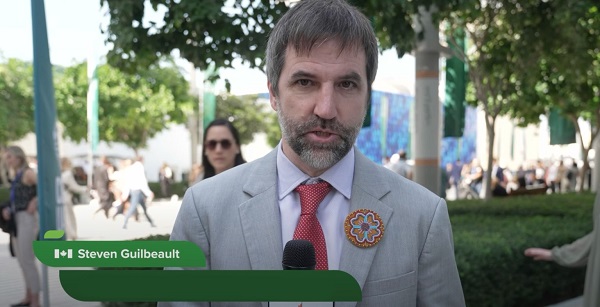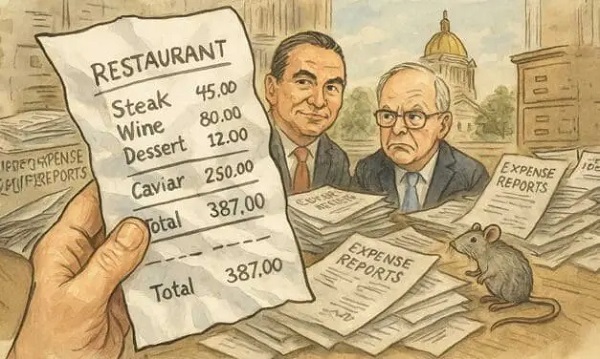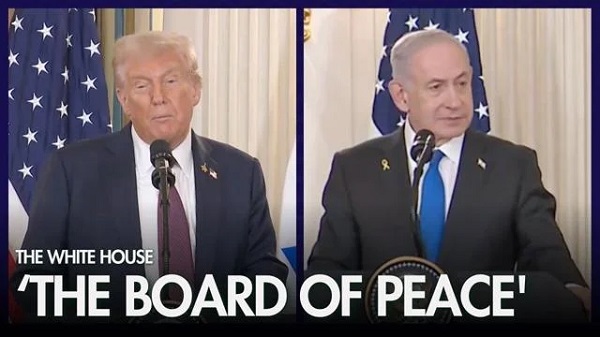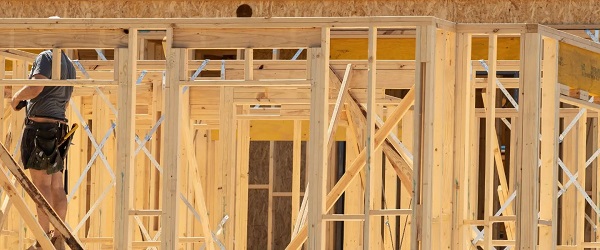Business
Oil producers brace for market share battle

This article supplied by Troy Media.
 By Rashid Husain Syed
By Rashid Husain Syed
OPEC+ launches a crude oil price war, and everyone will feel the pain
The gloves are off. OPEC+—the alliance of major oil producing countries led by Saudi Arabia and Russia —has abandoned its price-support strategy. Instead, it’s flooding the market to punish overproducers and claw back market share, regardless of the consequences.
For three consecutive months, despite falling prices, OPEC+ has ramped up output, bringing back 1.37 million barrels per day to the market. Until recently, it had withheld 5.3 million barrels per day—about five per cent of global supply—to stabilize prices. But that restraint is vanishing fast. The group is now rolling back voluntary cuts at high speed, opening the taps just as global markets are showing signs of oversupply.
Geopolitical developments are adding fuel to the fire. A possible breakthrough between Iran and the United States could put even more crude back into circulation. Meanwhile, Russia continues to find ways to move oil despite sanctions.
On top of that, U.S. production hit an all-time high in March at 13.499 million barrels per day, surpassing the previous record set just months earlier. Shale producers in the Permian and Gulf Coast regions continue to churn out oil, even as drilling slows elsewhere.
This rising tide of supply spells trouble for all producers, but it presents a unique challenge for jurisdictions like Canada, where oil sands production is a major driver of jobs, investment and government revenue.
Oil sands projects require massive upfront capital and long lead times, making new investments harder to justify in a weak price environment. Yet once built, these operations are remarkably resilient, with low ongoing costs and long production lifespans.
Major Canadian producers like Canadian Natural Resources can remain profitable even when West Texas Intermediate—a key oil price benchmark—falls into the low-to-mid US$40s. That long-term efficiency offers a structural advantage over U.S. shale, which depends on constant reinvestment. Still, prolonged low prices can stall future oil sands development and weigh on government budgets.
Meanwhile, demand is faltering. U.S. consumption dropped to its lowest level in a year, with total petroleum products supplied falling to 19.95 million barrels per day, a red ag for refiners heading into the crucial summer driving season.
Hopes that India might offset global demand weakness are fading. While its economy is growing, “India’s volumes aren’t anywhere near the Chinese boom in consumption that began in the early 2000s,” wrote Tsvetana Paraskova in Oilprice.com. Those who expected India to be the “next China” are in for disappointment. Between 2000 and 2025, Chinese crude demand growth averaged 485,000 barrels per day, noted Bloomberg opinion columnist Javier Blas. In contrast, India’s crude demand growth is just around 200,000 barrels per day annually, less than half of China’s booming growth during the 2000s and 2010s.
This growing mismatch between surging supply and tepid demand is already taking its toll. Brent price forecasts have been revised downward for the third straight month. Analysts now expect it to average just US$66.98 in 2025. U.S. crude is forecast to average US$63.35. These are bleak numbers for producers across the board.
As Rystad Energy’s Jorge Leon puts it, “Three strikes from OPEC+, and none were softballs. May warned, June confirmed, and July fires a shot across the bow.” The message is clear: OPEC+ is done playing nice.
This is a direct challenge to North American shale and high-cost producers like Canada. With the market saturated and demand falling short, the price pressure is mounting. Unless producers adapt quickly, they’re in for a punishing stretch.
The global oil market is being reshaped in real time, and the consequences will be felt in boardrooms and across national economies.
Toronto-based Rashid Husain Syed is a highly regarded analyst specializing in energy and politics, particularly in the Middle East. In addition to his contributions to local and international newspapers, Rashid frequently lends his expertise as a speaker at global conferences. Organizations such as the Department of Energy in Washington and the International Energy Agency in Paris have sought his insights on global energy matters.
Troy Media empowers Canadian community news outlets by providing independent, insightful analysis and commentary. Our mission is to support local media in helping Canadians stay informed and engaged by delivering reliable content that strengthens community connections and deepens understanding across the country.
Business
Bill C-8 would allow minister to secretly cut off phone, Internet service

From the Canadian Constitution Foundation
“I worry that this law could be used to secretly cut off political dissidents from their phone or Internet service on the pretense that they may try to manipulate the telecom system”
The Canadian Constitution Foundation is concerned about the civil liberties implications of the Carney government’s proposed cyber security bill, C-8, which would allow the minister of industry to secretly order telecommunications service providers like Telus, Bell and Rogers to stop providing services to individual Canadians.
The minister would be allowed to make such an order if she has “reasonable grounds to believe that it is necessary to do so to secure the Canadian telecommunications system against any threat, including that of interference, manipulation, disruption or degradation.”
An individual who does not comply, including by failing to keep the order secret, could face fines of up to $25,000 for the first contravention and $50,000 for subsequent contraventions. Businesses could face fines of up to $10 million for the first contravention and up to $15 million for subsequent contraventions.
The orders would remain secret indefinitely, with the minister required only to present an annual report to Parliament on the number of orders made and her opinion on their necessity, reasonableness and utility.
CCF Counsel Josh Dehaas said that the power to cut off the Internet or cellphone service of Canadians is a “very serious power that requires very strong safeguards, which are presently lacking in the bill.”
“While this power may be necessary in some cases to prevent cyber attacks, it also poses serious risks to civil liberties,” Dehaas said. “I worry that this law could be used to secretly cut off political dissidents from their phone or Internet service on the pretense that they may try to manipulate the telecom system,” Dehaas explained. “Such an action would violate our most cherished freedoms including free speech.”
CCF Litigation Director Christine Van Geyn said that the government cannot be trusted with such a power unless proper safeguards are in place.
“You may think that the idea of the government cutting off political dissidents from the necessities of life sounds far-fetched, but that’s exactly what happened during the 2022 Freedom Convoy protests in Ottawa,” she said. “The federal government ordered banks to freeze hundreds of bank accounts without any judicial authorization, cutting protesters off from their money in the middle of a very cold winter.”
“Although the Federal Court agreed with the CCF that freezing bank accounts this way violated the constitutional right to be secure against unreasonable searches and seizures, that kind of damage isn’t easily repaired,” Van Geyn added.
Ottawa has appealed the Federal Court’s finding. The CCF is awaiting a decision from the Federal Court of Appeal.
Dehaas said that Parliament should consider requiring either judicial pre-authorization or an immediate, automatic judicial review of any decision to cut off an individual or business from their Internet or phone.
The CCF is also concerned that Bill C-8 would allow the minister to weaken telecommunications companies’ encryption standards, allowing for unconstitutional access to Canadians’ private information.
Finally, the CCF is concerned that the bill could allow the minister or any person designated by the minister to engage in unconstitutional searches.
Joanna Baron, the CCF’s Executive Director, said that Canadians must be vigilant about their constitutional rights and freedoms because they can be easily taken away, especially in times of crisis.
“I would encourage Canadians to fight for their freedoms, whether it’s by taking the CCF’s free privacy course, signing up for our weekly Freedom Update newsletter or becoming a monthly donor,” Baron said.
“Concerned Canadians are also encouraged to write to their MPs using our form letter, to tell them to amend these bills to ensure Canadians’ rights to privacy and free expression are protected,” Baron added.
Alberta
Taxpayers: Alberta must scrap its industrial carbon tax

-
Carney praises carbon taxes on world stage
-
Alberta must block Carney’s industrial carbon tax
The Canadian Taxpayers Federation is calling on the government of Alberta to completely scrap its provincial industrial carbon tax.
“It’s baffling that Alberta is still clinging to its industrial carbon tax even though Saskatchewan has declared itself to be a carbon tax-free zone,” said Kris Sims, CTF Alberta Director. “Prime Minister Mark Carney is cooking up his new industrial carbon tax in Ottawa and Alberta needs to fight that head on.
“Alberta having its own industrial carbon tax invites Carney to barge through our door with his punishing industrial carbon tax.”
On Sept. 16, the Alberta government announced some changes to Alberta’s industrial carbon tax, but the tax remains in effect.
On Friday night at the Global Progress Action Summitt held in London, England, Carney praised carbon taxes while speaking onstage with British Prime Minister Keir Starmer.
“The direct carbon tax which had become a divisive issue, it was a textbook good policy, but a divisive issue,” Carney said.
During the federal election, Carney promised to remove the more visible consumer carbon tax and change it into a bigger hidden industrial carbon tax. He also announced plans to create “border adjustment mechanisms” on imports from countries that do not have national carbon taxes, also known as carbon tax tariffs.
“Carney’s ‘textbook good policy’ comments about carbon taxes shows his government is still cooking up a new industrial carbon tax and it’s also planning on imposing carbon tax tariffs,” Sims said. “Alberta should stand with Saskatchewan and obliterate all carbon taxes in our province, otherwise we are opening the door for Ottawa to keep kicking us.”
-

 Censorship Industrial Complex2 days ago
Censorship Industrial Complex2 days agoCanada To Revive Online Censorship Targeting “Harmful” Content, “Hate” Speech, and Deepfakes
-

 Business1 day ago
Business1 day agoTaxpayers deserve proof of how politicians spend their money
-

 Business1 day ago
Business1 day agoOttawa’s civil service needs a Chrétien-style reset
-

 International2 days ago
International2 days agoTrump, Netanyahu inch closer to peace plan for Gaza
-

 Alberta2 days ago
Alberta2 days agoAlberta refuses to take part in Canadian government’s gun buyback program
-

 Alberta2 days ago
Alberta2 days agoOrthodox church burns to the ground in another suspected arson in Alberta
-

 Fraser Institute1 day ago
Fraser Institute1 day agoAboriginal rights now more constitutionally powerful than any Charter right
-

 Alberta1 day ago
Alberta1 day ago$150 a week from the Province to help families with students 12 and under if teachers go on strike next week






